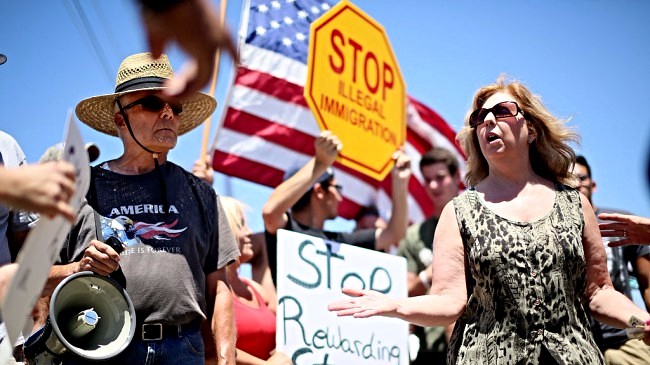
The role Facebook played — indirectly or otherwise — during the 2016 presidential election is generally known. However, a report last week alleging that Russian-linked fake news accounts purchased political ads seen by up to 70 million American users reignited social media’s controversial participation during the campaign. To make matters worse, these accounts and others with ties to Russian efforts to influence the election reportedly resulted in the creation of anti-immigration rallies and events attended by actual voters. Some in Texas were initiated by a group with over 225,000 followers.
According to Business Insider, a Facebook spokesperson said the group formerly known “Heart of Texas” was shut down last week as a part of the company’s new effort against profiles, pages and other content “affiliated with one another and likely operated out of Russia.” Even so, it’s reach — which peaked at over 225,000 group members as of last summer — went far and wide, according to journalist Casey Michel. The latter spent years tracking secessionist movements throughout the United States, including those in Texas, and discovered the group’s use of similar rhetoric during the 2016 election.
“[T]here was always something off about the ‘Heart of Texas’ page,” writes Michel. For starters, the group presented no contact information whatsoever. No details about its creators or administrators were available either. And unlike the Macedonian propaganda websites that bombarded Facebook with pro-Donald Trump and anti-Hillary Clinton ads, “Heart of Texas” featured no advertising whatsoever. “And then there were the typos,” Michel continues. “Horrible, no-good, laugh-till-you-cry typos, lining every other post, especially through 2016.”
Terribly written memes notwithstanding, Michel notes the group subsequently began collecting information from willing members to submit to the Texas Nationalist Movement (TNM). What’s more, the Facebook page also began organizing anti-immigration and anti-Clinton rallies in late October and early November. These events “didn’t generate much participation” as “only a few dozen people showed up at scattered sites across the state,” but their popular support on social media suggest the supposedly Russian-linked group (and others like it) achieved a significant reach during the election.
(Via Business Insider)
